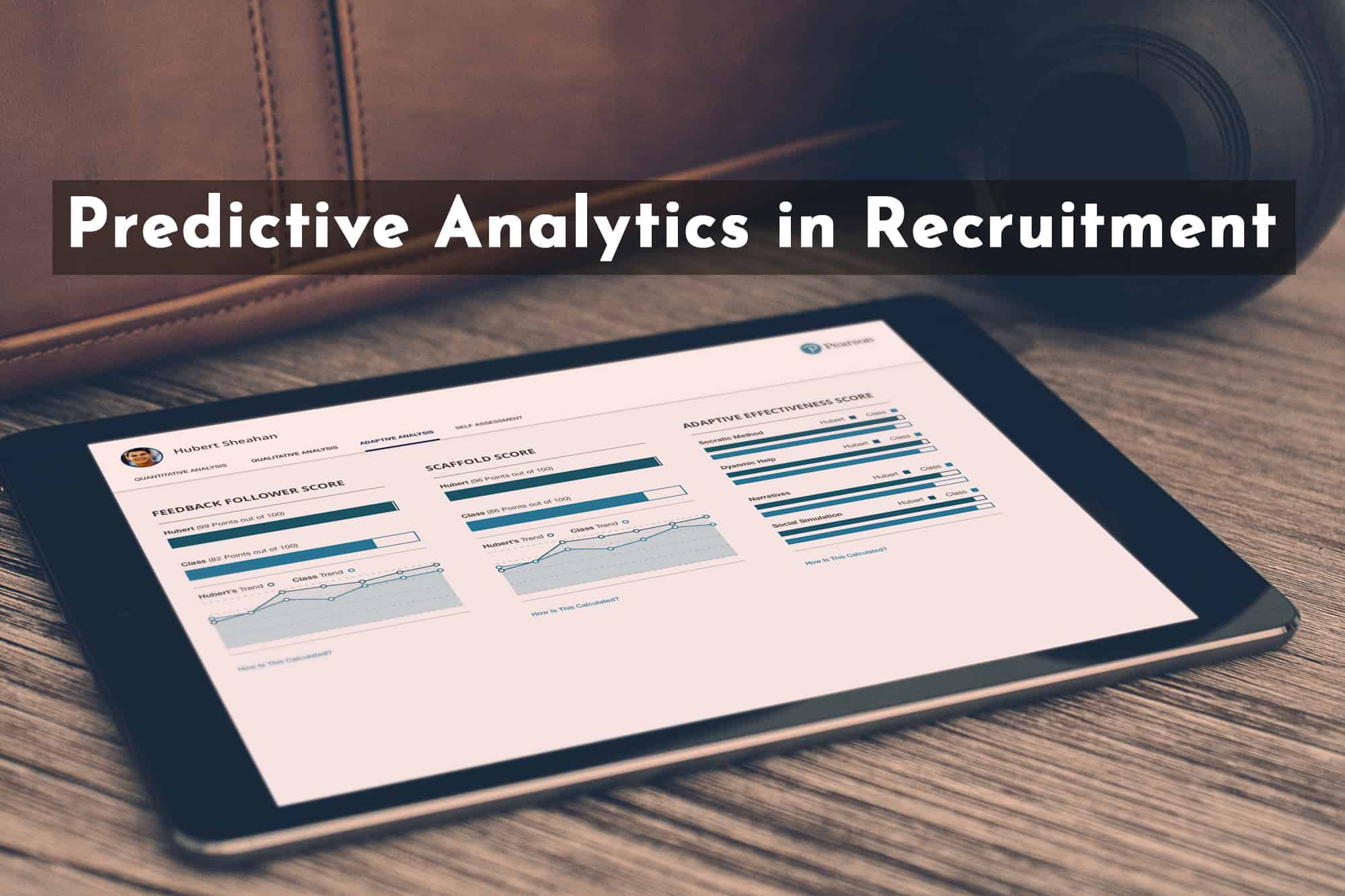2019 presents numerous opportunities as well as challenges for the global recruitment industry. Opportunities emanate from the changes in the enabling technologies that drive the sector. The advent of artificial intelligence (AI) and automation have put the focus back on processes, methodologies and return on investment (RoI).
As per LinkedIn’s survey Global Talent Trends 2019, one of the key areas for employers will be the focus on soft skills, creative and collaborative abilities, apart from technical/hard skills. Opportunities will also arise from laying down the necessary framework needed to assess the latent and cognitive capabilities of candidates, incorporating behavioral assessment mechanisms in to the hiring process. There has been a noticeable shift in the minds of HR practitioners/recruiters who are trying to incorporate a ‘digital first’ approach in their processes. For e.g. HRMS tools are expected to automate candidate interactions through its integration with applicant tracking systems (ATS). This forms the first point of interaction with potential candidates. Additionally, the application of data in recruitment will have long-term implications for the industry. Leveraging voluminous amounts of past recruitment data will inform decision-making in more and more organizations. Sourcing of candidates from the social media platforms and listening to the buzz have already become mainstream.
Historically low unemployment in the US and UK is making the job of recruiting more difficult. Recruiters may not have hundreds of responses to traditional job advertisements or have a pipeline of candidates to fall back on as it used be the norm earlier. One thing recruiters today are aware of, is the scarcity of talent and the need to undertake proactive steps. They have to dig deeper, mine out and reach potential candidates (may be passive), who may not be looking for a new job at the time, but nevertheless would make a great addition to the company’s workforce in the future.
The key challenge in the coming days will be to create a pipeline of candidates. One of the ways to do it is to build the employer brand and bring in differentiation. Enter recruitment marketing…..
How do you reach that elusive candidate?
The answer lies in effectively marketing your recruitment efforts. Recruitment Marketing is one of the two or three concepts that companies are looking to assimilate in to their people operations this year. For all practical purposes, Recruitment Marketing is an overlap of the concepts of marketing and recruitment. Or in other words, leveraging marketing techniques to tell a story – your brand story. Many organizations are lacking brand visibility which severely impairs their ability to attract the best and the brightest people. The idea is to entice candidates, who are otherwise not looking for a job change, to seriously contemplate trying a particular brand over others.
Organizations are starting their digital journey keeping customer at the centre. For them ‘customer-centricity’ is no longer a choice but a competitive advantage. ‘Digital first and mobile first’ are the key enablers of this digital revolution building on customer experience. Similarly to be at the top of the recruitment game, organizations will need to build competitive advantage, create differentiation and internalize the concept of ‘candidate experience’.
Outbound advertising or the traditional way of recruiting by posting on job sites, Glassdoor, LinkedIn, and company career sites are giving diminishing returns. Successful recruiters will take the cue from this and blend traditional methods and processes with employer branding, and inbound marketing efforts for better results.
- Employer Branding: Developing a brand, any brand, needs top class content and razor-sharp messaging. Employers need to develop relevant and incisive content targeted at potential candidates focused on what defines the brand as an employer. There is a need to highlight what stands apart vis-a-vis a competitor brand. From an organization’s perspective it could be workplace ethics, transparency, management style, cutting-edge software and tools, people strategies, rewards & recognition policies, career progression, succession planning and a host of other factors.
- Inbound Marketing: Also known as content-driven marketing, it involves ideating, conceptualizing, formulating, creating and disseminating employee-related content, often in the form of stories to target a particular audience. Content is at the heart of employee engagement today and it doubles up a virtual recruiting tool.
Content marketing
The explosion of the gig economy is redefining some of the core concepts of recruitment. Digital, mobile and data are the main forces effecting this change, driving HR teams to learn and apply the concepts of marketing in recruitment by coordinating with the marketing teams. Creating top-class content coupled with effective targeting strategies is the centre-piece of any successful inbound recruitment marketing program today. Companies need to channelize a part of their recruitment budget in to creating a range of digital assets such as blogs, pictures, videos, ebooks, infographics, vlogs, social interactions, events, and employee testimonials/stories to name a few. Content is a powerful and permanent digital asset and endures for a long time. Social media is the perfect amplifier for any recruitment marketing effort; once the content is created it can be splashed across every conceivable media, multiplying its reach.
For e..g employee stories have the potential to engage candidates, help create interest and draw them in for participation.
LinkedIn Elevate, launched in 2015, is a content curation and social sharing platform that enables ‘employee advocacy at scale’. Available via mobile as well as on desktop, the paid application helps companies curate content from various internal as well as external sources, give access to employees to share the content and measure the impact across key metrics. Glassdoor has become an important platform for both employers and employees to share their views on a variety of topics which in turn helps potential candidates with the requisite information while researching about a particular company. Employers are responding to employee comments and feedback, to appear as ‘engaged employer’, which adds to the trust and transparency of the brand.
Vlog platforms such as VideoMyJob and Videolicious have become synonymous with creating and sharing employee testimonials and feedback in the form of videos on the web.
Recruitment Marketing platforms:
According to TalentLyft, a top-of-the-line recruitment automation vendor, “recruitment marketing software is a software program, tool or platform designed to automate, streamline and improve recruitment marketing process and operations”. The company makes a distinction between talent acquisition and recruitment marketing despite the commonality of the involved steps. There are a plethora of similar tools in the market – Hootsuite and Sprout help recruiters to manage social contacts, scheduling messages and attracting attention from passive candidates
Any recruitment marketing platform generally consists of 4 basic functionalities (the list is not exhaustive, some platforms may have more or less features)
1. Sourcing
Enables the recruitment team source passive candidates apart from active ones from across multiple sources on the web. In a candidate-driven market the ability to source passive candidates holds the key. Some applications also enable automatic distribution of the job advertisements across multiple job boards, both free as well as premium and help promoting the jobs on social media sites.
2. Attracting/Creating interest
Targeted messaging plays an important role in creating interest in potential candidates which is done through the improvement of employer branding and optimizing it for better web results.
3. Engagement
Managing candidate relationships, just like customer relationships, go a long way in putting together a pool of candidates. It is not enough to manage and improve communication with current candidates in various stages of the recruitment pipeline but also extends to potential candidates.
4. Recruitment Analytics/data visualization
Any team that invests in these platforms will also leverage it to report and measure the performance of the team; metrics like time to hire, cost, candidate experience benchmark scores, source of hires and RoI on recruitment campaigns. These platforms provide multiple data points across parameters, enabling data visualization, analysis and decision-making.
Social recruiting:
While social recruitment was a trend in 2018 and gained a lot of momentum, 2019 promises to be a very different year. Gen Z, also known as ‘Digital Natives’ formally joins the workforce. To cater to their job search requirements, companies will have have to bring in far-reaching changes in to their process. In a candidate-driven job market, social recruiting is going to be the key differentiator.
Companies also need to step up their game on social platforms if they want to encash on this opportunity. A mere presence on social sites is not going to be a game-changer. Companies need to invest in running targeted recruitment campaigns, retrain recruiters, and fully leverage communication channels to improve candidate experience.









